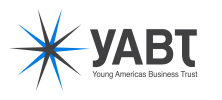Didart
The YABT entrepreneur of the month is Crista Núñez, a Guatemalan entrepreneur, co-founder of NIM and Didart, two social businesses that seek to highlight the role of the artisan and their products, indigenous culture of Guatemala and Central America. Crista was a finalist of the Central American Eco-Reto in 2015 and recently established a partnership with cbc to launch EcoUnidos, a mobile application that promotes the care of the environment through the culture of recycling.
How Didart Emerged
Crista Núñez began her journey as a social entrepreneur in 2011 when she started a social project at her university during her study of industrial design. For this project she had the opportunity of working with a group of artisans in rural communities throughout Guatemala to accomplish a line of textile products based on bamboo fiber. This social project helped her to discover her passion and her cause for raising awareness of the importance of craftsmanship for the Guatemalan culture.
On the other hand, Crista had prior experience teaching in primary school in Guatemala and she realized that children in schools did not value artisan products versus the industrial products. More specifically, the children from a very young age developed a preference for industrial products since they came from abroad and thus were seen as more attractive. However, this preference, Crista tell us, is due in large part to the lack of knowledge about the manufacturing process behind the artisanal products. According to Crista, artisans are the drivers of Guatemala and many times their products are underrated. From this vision emerged Didart in 2014, a social entrepreneurship led by women who are seeking to teach children the value of artisan products for the Guatemalan culture and the diversity of its raw materials. The mission of Didart is to teach children through technology the relevance of artisanal products for the preservation of the environment. “Different from an industrial product, an artisanal product gives back to the earth because all of the materials that it is made of are organic and there is a need in Guatemala to generate awareness of the use of natural products,” emphasized Crista.
Impact
Didart created 18 types of toolkits that combine technology, teaching about indigenous culture, diversity of materials and techniques the artisans use in Guatemala. These toolkits are used as an instrument for the teachers imparting the classes at the primary school level. The toolkit is formed by an application that helps users to virtually transport themselves to the areas where the natural materials that are used by the artisans are collected and to understand all of the steps and techniques that the artisans follow to complete an artisanal product. In addition, the application relies on a guide with instructions and the raw materials from which the artisanal products are made that are bought directly from the artisans. Through this tool, Didart looks for the learning process that is not unilateral but that it is a tangible experience, and that the young people that do not have the opportunity of traveling to distant rural areas from the capital become familiar with the original artisanal processes from that area and its raw materials. Each of the toolkits contains three different raw materials and three stories of artisans in Guatemala.
In 2015, these toolkits were acquired by five schools in Guatemala and one in El Salvador impacting about 400 students. For this year, Didart hopes to expand operations to fifteen additional schools in Guatemala and to have access to more than 1500 students.
EcoUnidos
At the conclusion of the TIC Americas, Crista had the opportunity of presenting Didart to cbc executives, partner of YABT of the Eco-Reto Central America category. Although Crista did not end up winning this category, cbc invited her to form a partnership to create a new product: the mobile application EcoUnidos.
EcoUnidos is directed towards young adults that promote a culture of reduce, reuse and recycle of waste, such as PET bottles, paper, Tetrapak, glass, plastic, car batteries, among others. To do this, it developed a database of collection centers and arranged them geo-spatially in Guatemala, El Salvador, Honduras and Nicaragua with the objective of informing users about the nearby places where they can recycle certain types of waste.
EcoUnidos launched in December 2015 and counts more than 1000 visits per day. The mobile application EcoUnidos is now available in AppStore and Google Play and is completely free. If you want to know more about EcoUnidos, we have shared with you a virtual session with Didart and cbc here.
Advice to entrepreneurs
We asked Crista Núñez to share a valuable tip with all of the youth that want to begin to start up a business, she told us “If you already know something, and you are passionate about it, build on that […] the TIC Americas helped me a lot with Didart to structure many parts of my business plan, such as the form of the market and the planning of the medium and long term, additionally to find a local partner like cbc and other entrepreneurs from other countries in Latin America.”

